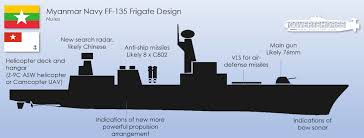
Introduction
The situation in Myanmar has escalated dramatically since February 2021, when a military coup ousted the democratically elected government of Aung San Suu Kyi. The coup has led to widespread civil unrest, a severe humanitarian crisis, and an intensification of armed resistance against the military junta. Understanding the current events in Myanmar is crucial, as they not only affect the country’s internal dynamics but also have far-reaching implications for regional stability and international relations.
The Political Landscape
Since the coup, Myanmar has been in turmoil. The military coup attempted to reinstate the State of Emergency and has faced persistent resistance from various ethnic armed organizations and the National Unity Government (NUG), a shadow government formed by ousted lawmakers. In recent months, there has been a notable increase in clashes between the military and local resistance forces, leading to hundreds of casualties and significant displacement of civilians. Reports indicate that more than 1.5 million people are currently internally displaced due to escalating violence.
Humanitarian Crisis
The humanitarian situation in Myanmar is dire. The United Nations has reported that over 14 million people are in need of assistance as access to healthcare, food, and shelter diminishes. The COVID-19 pandemic, combined with a lack of political stability, has exacerbated the suffering of many communities. Human rights organizations have highlighted serious abuses by the military, including extrajudicial killings, torture, and arbitrary detentions. Access to essential services is limited, leading to a public health crisis alongside the ongoing conflict.
International Response
The international community’s response has been mixed. While countries such as the United States and members of the European Union have imposed sanctions targeting military leaders and their business interests, discussions on collective action remain fragmented. The Association of Southeast Asian Nations (ASEAN) has attempted to mediate the situation, yet its effectiveness has been questioned due to the reluctance of member states to confront the military junta directly. Calls for accountability and justice from the international community continue to grow, with some advocating for the establishment of a UN-led inquiry into the actions of the Myanmar military.
Conclusion
The ongoing crisis in Myanmar represents a significant challenge not only for the country itself but also for international diplomacy in Southeast Asia. The resilience of the Myanmar people amid oppression and violence demonstrates their commitment to democracy and human rights. As the situation continues to evolve, it is crucial for the global community to remain engaged and advocate for a peaceful resolution that respects the will of the Myanmar people. The future of Myanmar remains uncertain, but it is a situation that warrants close attention from policymakers and human rights advocates alike.






